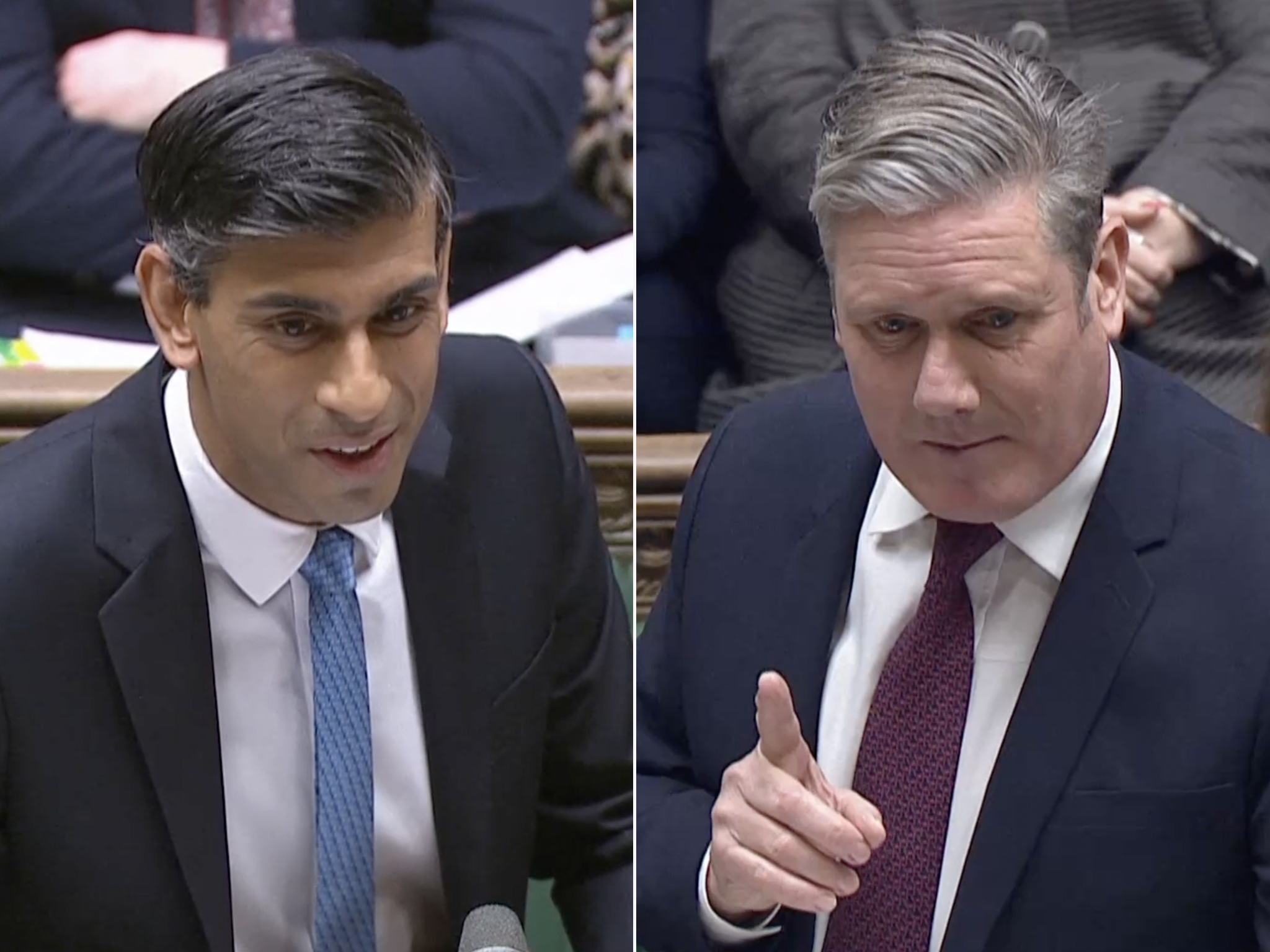Taking a hard stance on immigration will backfire – for everyone
The PM and Labour leader will continue to make headline-grabbing promises on migration they don’t really want to keep and the country can’t afford, writes Andrew Grice


Keir Starmer unnerved Tory MPs by winning headlines about tackling “immigration dependency” and “cheap labour”, punching the Tories’ bruise when they are hurting over the small boats crisis in the Channel.
Anxious Tory MPs do not like Labour invading their natural turf; immigration is traditionally an issue on which the Tories have been ahead of Labour. The Tory jitters index reached new heights on Thursday when official figures showed that net migration to the UK reached a record 504,000 in the year to June.
Although experts rightly pointed to one-off factors, Tory MPs demanded the government get “a grip” and fired off an angry letter to Suella Braverman, the home secretary, demanding a “dramatic” cut in the number of work visas. Some backbenchers even sense an existential threat from their right flank as Nigel Farage threatens to make another comeback to exploit their “betrayal of Brexit”.
Starmer backed a return to the EU’s free movement of people regime when he ran for the Labour leadership but now has his eyes on a different prize – winning power in the country. They are firmly focused on the red wall, where Boris Johnson’s promise to “take back control” of UK borders was an important part of Brexit’s appeal at the 2019 general election.
Previous Labour efforts to look “tough” on immigration have sometimes flopped. Tony Blair kept the issue in lights by demanding legislation even when there was no need for one. We had Gordon Brown’s promise of “British jobs for British workers” and Ed Miliband’s red mug promising “controls on immigration” but the Tories could always outbid Labour. Today, with highly visible Channel crossings regularly on TV news bulletins, the Tories are vulnerable; the Brexiteers have palpably failed to deliver “control”. So Starmer is on stronger ground than his predecessors.
The tough message in his speech to the CBI conference delighted his allies. “We are not going to walk into Tory traps on immigration before the election,” one shadow minister told me. But it worried some Labour MPs who favour a more liberal approach.
In fact, the party’s policy is more nuanced than the headlines suggested: a Labour government would enhance the role of the migration advisory committee to make the work visa system quicker and more flexible but in return, business would have to improve the skills of British workers and invest in technology to reduce their reliance on foreign labour. In practice, a Starmer government would probably be more liberal than he suggests; this explains why he refuses to play the numbers game and say by how much migration would fall.
Indeed, the numbers game has haunted the Tories. David Cameron’s undeliverable, back-of-an-envelope pledge to reduce net migration to “tens of thousands” was dropped by Johnson but foolishly revived as an ambition when Braverman played to the Tory gallery last month’s party conference. Rishi Sunak feels he must nod to the Tories’ 2019 manifesto promise that “overall numbers will come down.”
The prime minister’s response at the CBI when it pressed for more work visas was instructive: his default position was to talk about illegal migration and the small boats – a completely different issue – so he could sound tough. (Similarly, the home secretary is so obsessed with the small boats headache that she couldn’t answer MPs’ questions about legal asylum routes; remarkably, they are not even on her radar.)
Sunak tried to neutralise what he saw as bad news about record net migration by re-floating familiar plans to reduce the number of international students, but this is causing cabinet tensions because they are worth an estimated £26bn to the economy and cross-subsidise the lower fees paid by UK students. One option is to say that only elite universities can take foreign students but that would hit smaller ones that are specialists in some fields.
Their aides tell me that both Sunak and Starmer are passionate about boosting the skills of UK workers. Yet both leaders know that is a long-term mission that will not help British firms who need more work visas now to fill vacancies and help find the holy grail of economic growth.
To keep up to speed with all the latest opinions and comment sign up to our free weekly Voices Dispatches newsletter by clicking here
In fact, voters are less hostile to migration than our politicians dare to admit. A study of public opinion by the IPPR think tank shows how in the past decade, people have become strikingly more positive about it, creating space for a welcoming, flexible and fair system.
The economic case was underlined last week by the Office for Budget Responsibility, which revised tax revenues upwards by up to £7bn due to higher-than-expected net migration and also said growth would be higher.
Yet Sunak and Starmer stick to their tough rhetoric on migration, even though the economic reality is different. They insist their approach is about the economy, but raw politics trumps it.
So the PM and Labour leader will continue to make headline-grabbing promises on migration they don’t really want to keep and the country can’t afford. That will not help to restore public trust in politics, as both Sunak and Starmer claim they want to do.






Join our commenting forum
Join thought-provoking conversations, follow other Independent readers and see their replies
Comments